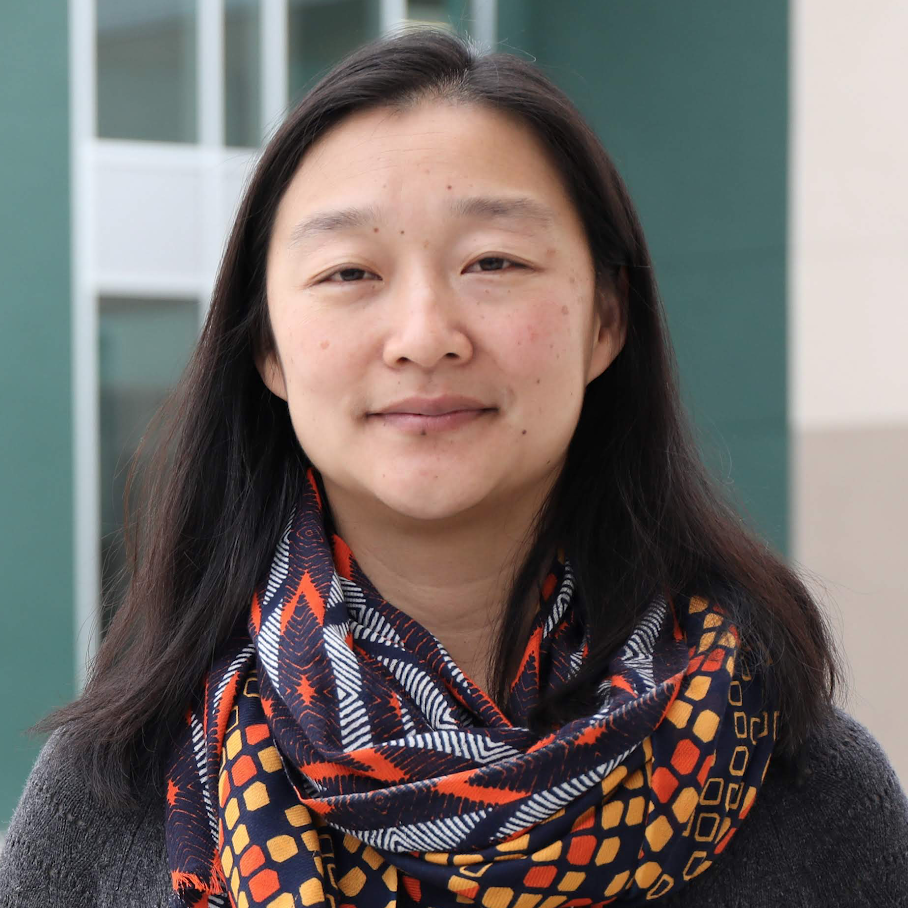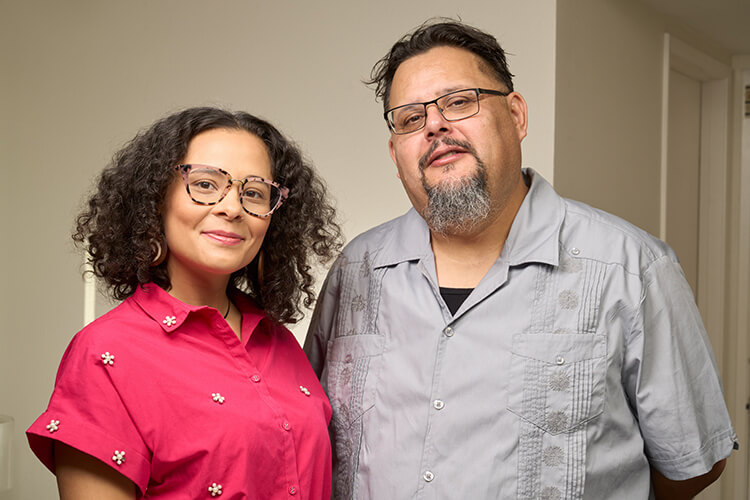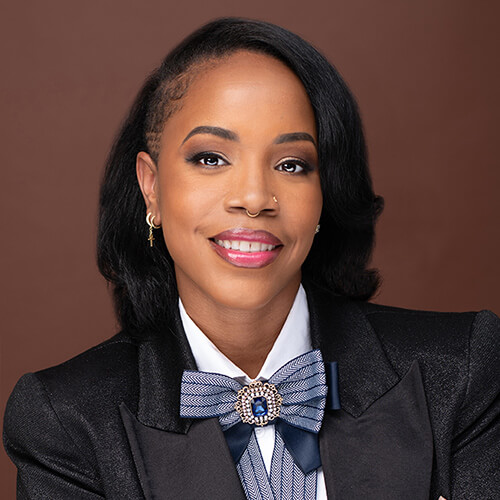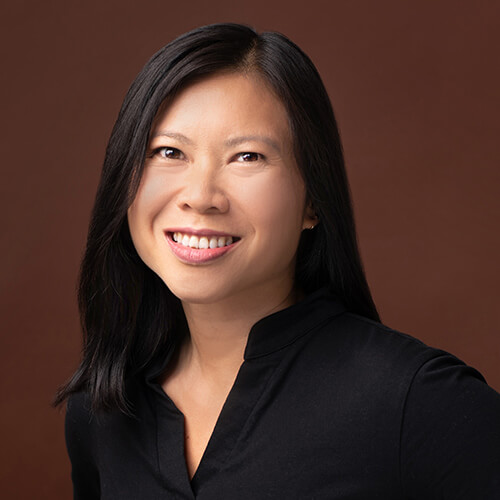The most effective co-leaders work with a foundation of trust and a shared commitment to their nonprofit’s mission. But it is their different lived experiences and points of view that help make them—and their organizations—stronger together.
This was a recurring theme in the origin stories of several leaders who took part in the Bridgespan Co-Leadership Learning Circle. Their stories—describing how and why their nonprofits chose co-leadership—show that diverse perspectives at the leadership level strengthen mission alignment and drive more effective solutions.
In this third part of our series on what drives co-leadership, we hear from several leaders on how their personal experiences inform their work and commitment to their organizations’ missions. We hope their stories inspire others curious about co-leadership.
CoGenerate
Organization: CoGenerate’s mission is to bring older and younger people together to solve problems and co-create the future. It invests in social innovators, supports narrative change work, and connects people to each other and opportunities.
Co-Leaders: Marc Freedman, Founder and Co-CEO | Eunice Lin Nichols, Co-CEO
For more on their path to co-leadership, see the first part in this series >>
 Eunice Nichols, Co-CEO
Eunice Nichols, Co-CEO
CoGenerate
Extending Family
Years before becoming co-CEO, Eunice Nichols had joined CoGenerate to run one of its flagship programs, which connected older people as tutors for youth. It was her upbringing that first drew her to the nonprofit. A daughter of parents who emigrated to the United States from Taiwan, Nichols grew up in a multigenerational home with her parents and grandparents.
“That shaped who I am,” Nichols says. “I had lived the beauty of intergenerational relationships, and now I had a chance to make it happen in real places—to turn schools, that maybe felt a little institutional, into places that felt more like home or extended family.”
When founder and then-CEO Freedman approached Nichols about becoming his successor, Nichols says she observed a leadership culture that was overly demanding and not something she could embrace. Instead, she suggested a reimagined form of leadership at CoGenerate—co-leadership with Freedman. This approach allows Nichols to remain committed to her personal mission of doing good for the world and her family, and reinforced her belief that co-generational collaboration can make a positive impact on society—all while honoring her ancestry. The broader organization also benefits from a unique combination of Freedman’s vision and Nichols’ personal experiences to shape future strategies and programming.
CADRE
Organization: CADRE places Black and brown parents at the center of efforts to affect systemic change in public education in South Los Angeles. The organization’s vision includes schools that facilitate solidarity and agency amongst families and center the most marginalized parents as solution drivers and changemakers.
Co-Leaders: Carlos R. Valle, Co-Executive Director of Operations and Sustainability | Élice Hennessee, Co-Executive Director of Strategy and Sustainability
For more on their path to co-leadership, see the first part in this series >>
 CADRE Co-Executive Directors
CADRE Co-Executive Directors
Élice Hennessee and Carlos R. Valle
Experiencing the Systems First Hand
Born and raised in South Los Angeles, Hennessee’s father was incarcerated in her youth, and “[I saw] the toll that took on my family within schools at every level from elementary school all the way through college, including community college. [I was] seeing how injustice in a school climate functioned at every level of the education system.” Later, as an education professional, she continued to witness those same effects on students. So when the CADRE opportunity arrived, she says, “It wasn’t just a perfect intersection of my professional career, but it was also a perfect intersection of the experiences that I had throughout my life and the perspectives that I had gained from being impacted by systems.”
Valle, meanwhile, had his own experiences shape his outlook on the supports CADRE could and should provide. As an educator in the South Los Angeles school system during “the heart of the school reform era,” he says, “I witnessed firsthand how parents were given the space to provide input in order to gain a victory, but then, once the victory was achieved, they were pushed out of future decision making. And so I knew that excluding parents was inherently contrary to my values and beliefs.” That knowledge continues to shape his work at CADRE. And both he and Hennessee believe that the combination of their lived experiences create the opportunity for better results for the organization.
“Our co-leadership works because, as leaders, we are complementary. We each bring our unique insights and perspectives, while also maintaining a commitment and alignment to CADRE’s organizational mission and vision,” Hennessee says.
if, a Foundation for Radical Possibility
Organization: if, a Foundation for Radical Possibility centers the leadership and expertise of Black people and other people of the global majority in the Washington, DC, area. The organization is specifically focused on those who live at the intersections of systems of oppression across race, class, and gender identities.
Co-Leaders: Temi F. Bennett, Co-CEO | Hanh Le, Co-CEO
For more on their path to co-leadership, see the first part in this series >>
 Temi F. Bennett, Co-CEO
Temi F. Bennett, Co-CEO
if, a Foundation for Radical Possibility
Shared Experiences Plus Complementary Skillsets
if, a Foundation for Radical Possibility, focuses on people living at the intersections of systems of oppression across race, class, and gender identities. By centering the leadership of Black people and people of the global majority and using a participatory grantmaking model, if works to transform the philanthropic sector through community power-building.
As two women of color in a white, male-dominated sector, if’s co-CEOs Bennett and Le have each experienced microaggressions, feelings of not belonging, and power imbalances. Their combination of personal experiences and complementary skillsets aligned with if’s mission to transform the philanthropic sector, de-center power, and support those most affected by racism. In other words, it became clear that they could lead an organization as allies to their community partners.
 Hanh Le, Co-CEO
Hanh Le, Co-CEO
if, a Foundation for Radical Possibility
“The co-leadership model is aligned with our commitment to healing for ourselves and our organization and our sector,” Le says. “It helps us lead and do this work in a way that is sustainable and also fulfilling, deeply collaborative, and in solidarity with each other and all those internally at the foundation and beyond,” Le says.
From the outset, the work was very personal for both CEOs. Le, who was ready to leave the philanthropy sector altogether because of how lonely it could feel, says she found a group of allies through her work at if. Her biggest ally, of course, is Bennett, and it’s a relationship that has been nurtured by the co-leadership model. For her part, Bennett says that if is the only place where she can “work professionally and be unapologetically Black,” allowing her to be a better ally to if’s community.
“I am personally invested in Black liberation and freedom for all oppressed peoples and formerly oppressed people,” Bennett says. “I do this work for my ancestors, I do it for my present family and friends, and I do it for future descendants.”

